35 Fruits and Veggies to Solve Your Skin, Digestion, and Inflammation Problems
If you ask any experts out there about what's the best thing you can do to take care of yourself and your health, they would probably say having a balanced diet is key. What you eat affects every part of your body. You can leverage it to help you ward off illness, reduce your risk of disease, feel more energetic, boost your mood, and so much more.
"People assume that my response will be a magic herb or supplement, or a popular diet like low carb or keto to fix what ails them," Brooke Scheller, MS, CNS, DCN-C, the director of nutrition at Freshly, says when she's asked that question. "However, my answer is always simple: Eat more vegetables. They are the most nutrient-dense foods we can incorporate into our routine that help support the entire body's systems—from digestion to skin to bones and joints to brain, heart, and lungs. Even those ailments that seem irrelevant to what we eat, like our mood, acne, inflammation, and so much more."
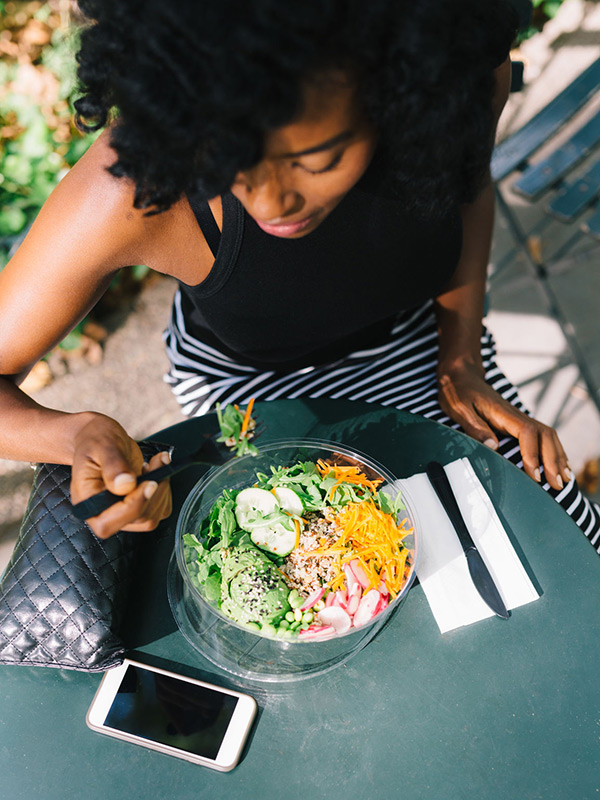
So what exactly is a "balanced diet"? I went to the experts to answer that question. "A well-rounded pattern of eating is one that nourishes the body," explains Maya Feller, MS, RD, CDN of Brooklyn-based Maya Feller Nutrition. "The basis is to have a higher proportion of whole and minimally processed foods such as vegetables (both starchy and non-starchy), fruits, legumes, nuts, seeds, and whole grains. And for those who consume animal products, plain or fermented dairy, lean meats, poultry, and fish. Ideally, this pattern of nourishment would have limited added sugars, salts, and synthetic fats. Because there is no one size that fits all, it would also include flavors and spices unique to the individual with sustainability in mind."
Variety is important, too, adds Yasi Ansari, MS, RD, CSSD, a national spokesperson for the Academy of Nutrition and Dietetics. She also recommends consuming foods that support a healthy gut and making sure you stay hydrated.
To get more specific, I asked the experts what vegetables and fruits, in particular, were best to support common health areas like glowy skin, inflammation, and digestion. They broke it down for me below:
Best Vegetables for Skin Health
1. Cabbage
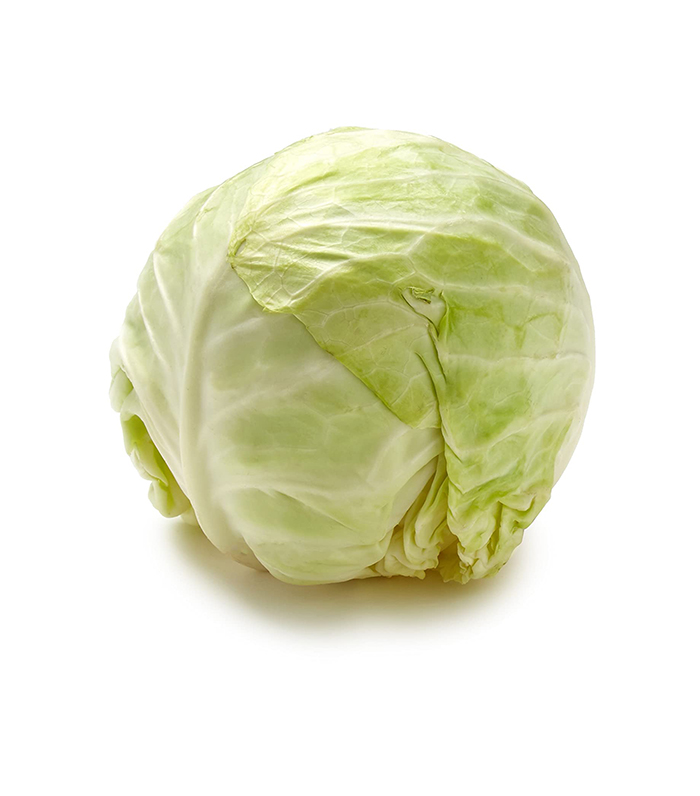
Feller says that cabbage is a good source of fiber. "Fiber plays an important role in reducing systemic inflammation and promotes the growth of friendly bacteria in the gut," she explains. "When overall inflammation is reduced and the gut is functioning optimally, the skin's integrity and overall texture/appearance may be improved."
2. Spinach
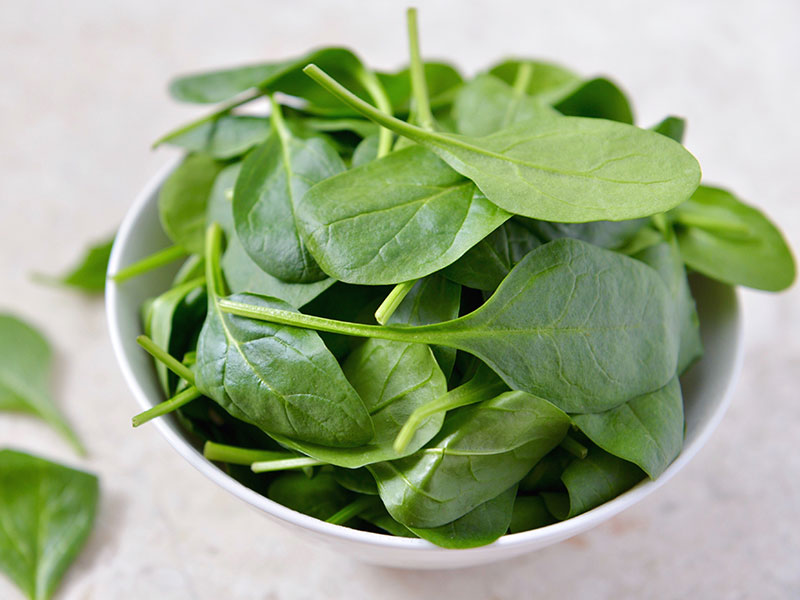
Ansari says that some research suggests foods high in vitamin A may help reduce skin damage and premature aging. Vegetables packed with vitamin A include spinach, carrots, root vegetables, and sweet potatoes.
3. Cauliflower
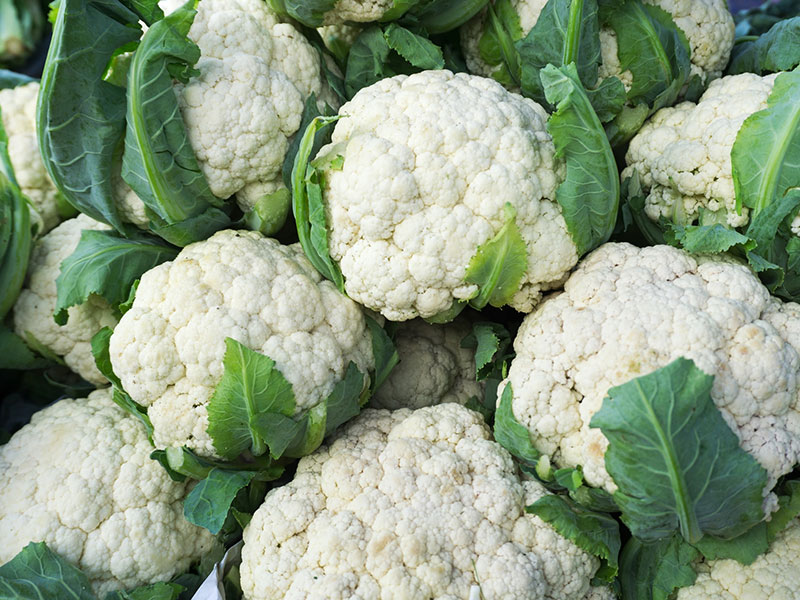
"Cruciferous vegetables, like broccoli and cauliflower, can help with elimination of waste from the system, and provide nutrients like vitamin C and beta carotene," Scheller says.
4. Garlic
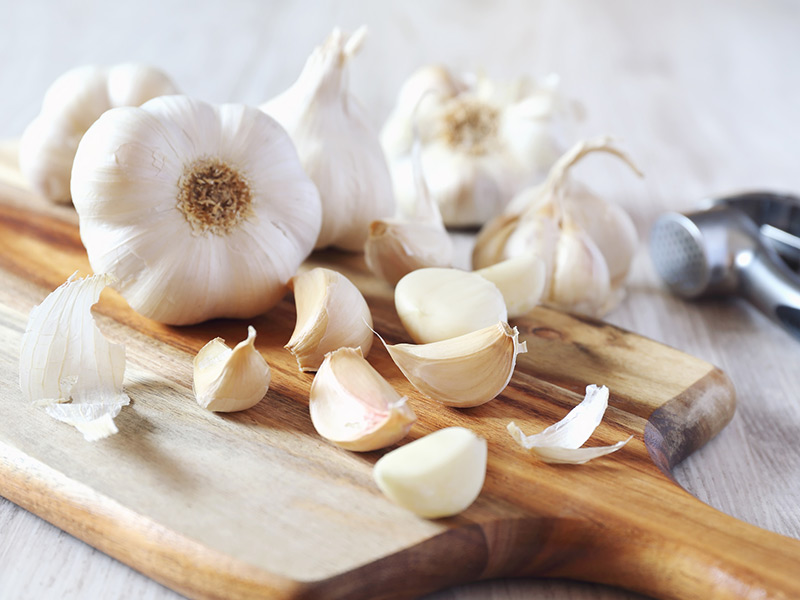
Garlic is helpful for gut health. "It contains components when digested and broken down in the gut can help promote the growth of good bacteria especially the bacteria Lactobacillus," Feller says. "This helps modulate the body's inflammatory response as well as the skin's ability to fight off inflammation by reducing free radical damage."
5. Brussels Sprouts
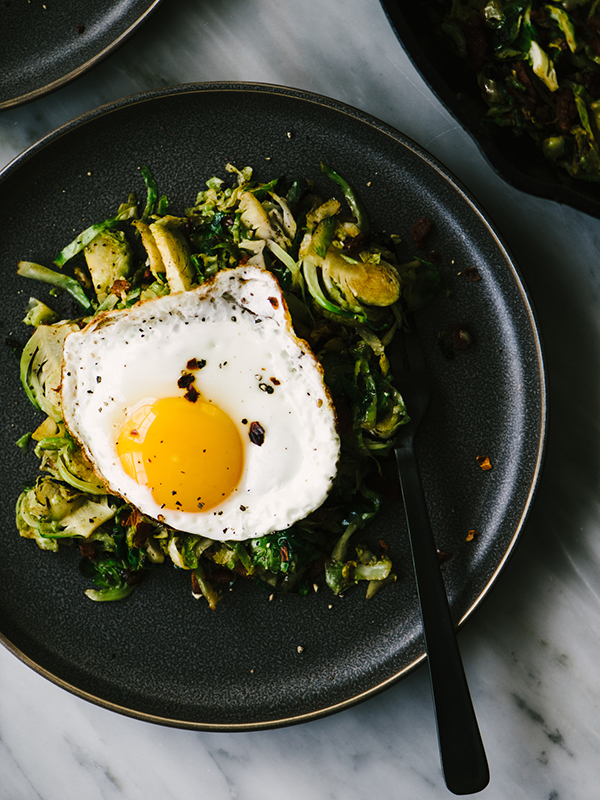
"Vitamin C rich foods protect the skin from oxidative damage that can be caused by the environment," Ansari says. "It can also help boost collagen synthesis, which can help repair damaged skin." Some sources of vitamin C include bell peppers, broccoli, and Brussels sprouts.
6. Carrots
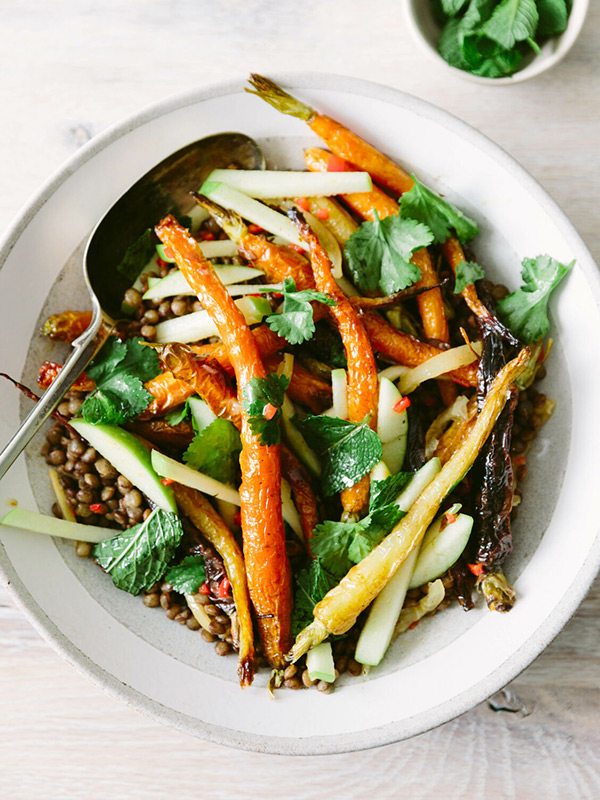
Beta carotene is another helpful nutrient when it comes to skin health. "It's a precursor to vitamin A in the body," Scheller says. "Because beta carotene acts as an antioxidant in the body, it can help eliminate harmful compounds that increase aging and create inflammation in the body."
7. Dandelion Greens
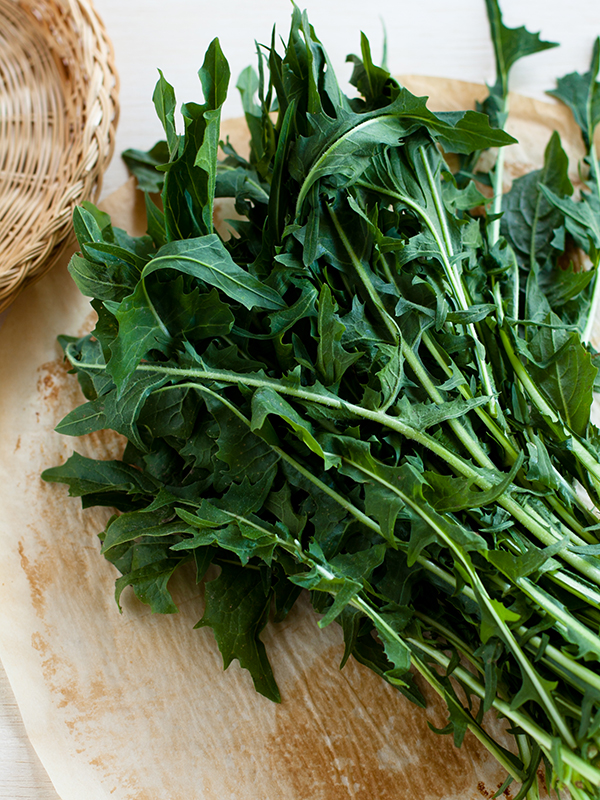
Dandelion greens are another gut-healthy veggie. "It contains inulin, which serves as a good prebiotic in the gut," Feller says. "Inulin helps with promoting the production of gut-friendly bacteria, which in turn can help reduce overall inflammation. The skin can express dysfunction in the gut. Once systemic inflammation is reduced, there may be an improvement in the skin."
8. Butternut Squash
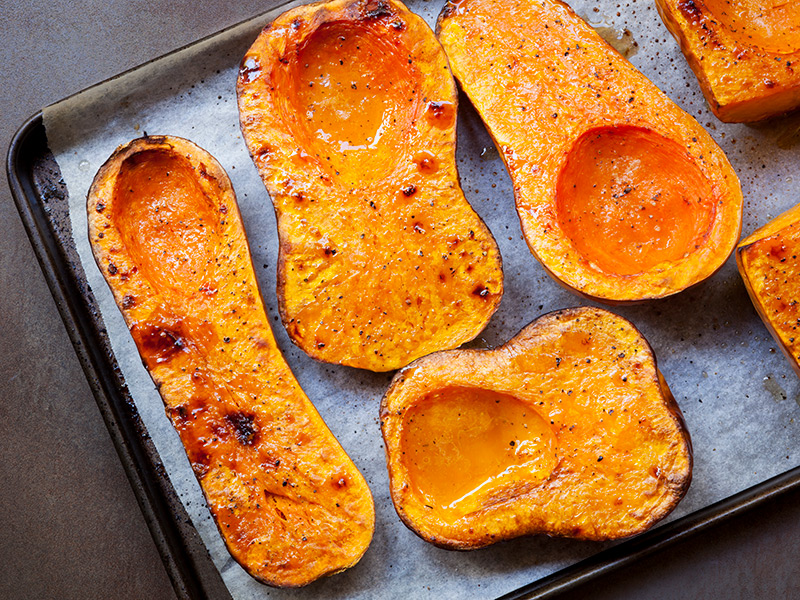
Ansari says vitamin E is an antioxidant that helps protect the skin. "Butternut squash offers vitamins A, C, E—these are antioxidants which help protect cells from free radical damage," she adds.
9. Kale
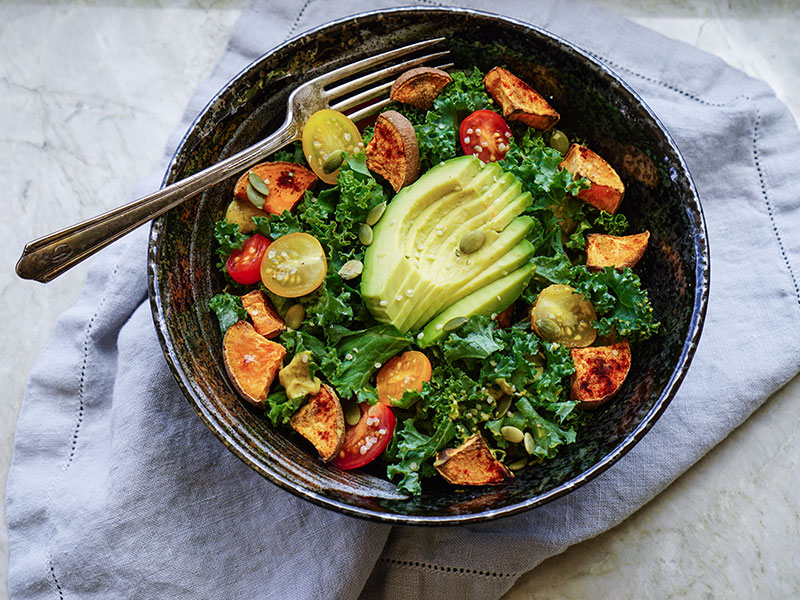
"Kale is one of my favorites for healthy skin," Scheller says. "Kale provides beta carotene, magnesium, and fiber that help aid in digestion and promote healthy glowing skin."
Best Fruits for Skin Health
1. Pineapple
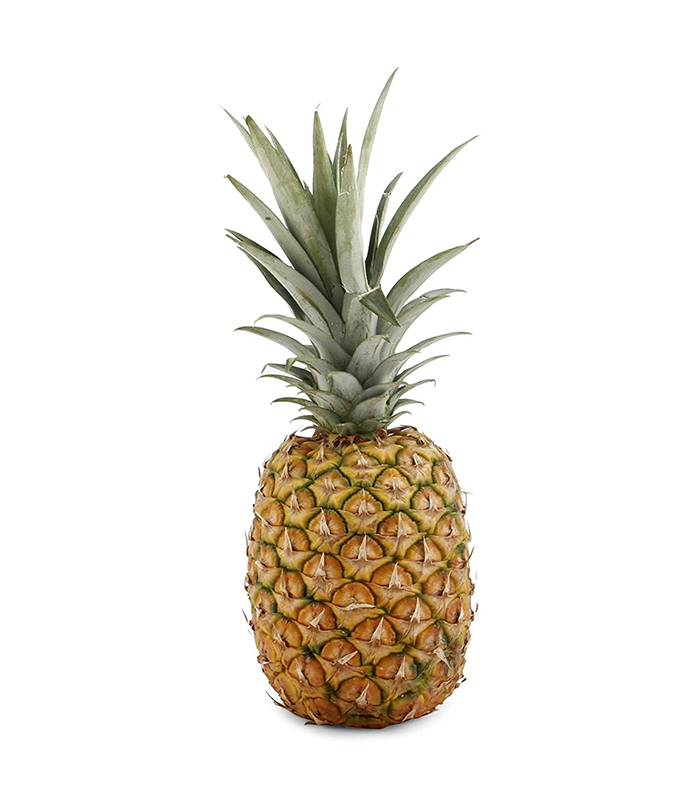
"It contains bromelain, which has wound-healing and anti-inflammatory benefits," Feller says. "Bromelain may also help improve circulation throughout the body and possibly support healthy skin turnover." Scheller also adds that the special enzyme can also aid in protein digestion.
2. Cantaloupe
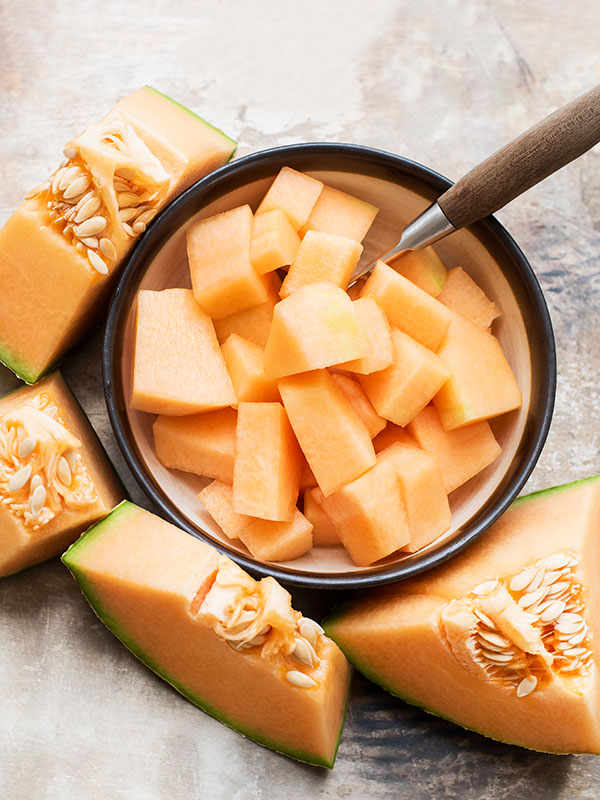
Melons, like cantaloupe, are a great source of vitamin A, which we know from above is beneficial to skin health. The fruit is also rich in vitamin C and beta carotene.
3. Berries
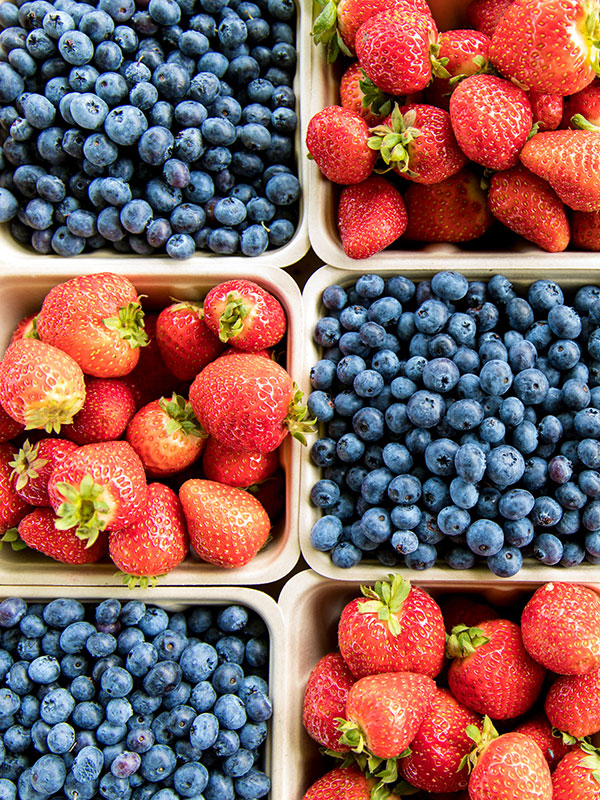
Berries, citrus, melon, kiwi, and mango are packed with vitamin C, which we know has great skin benefits. Scheller says it also helps support immune function.
4. Bell Peppers
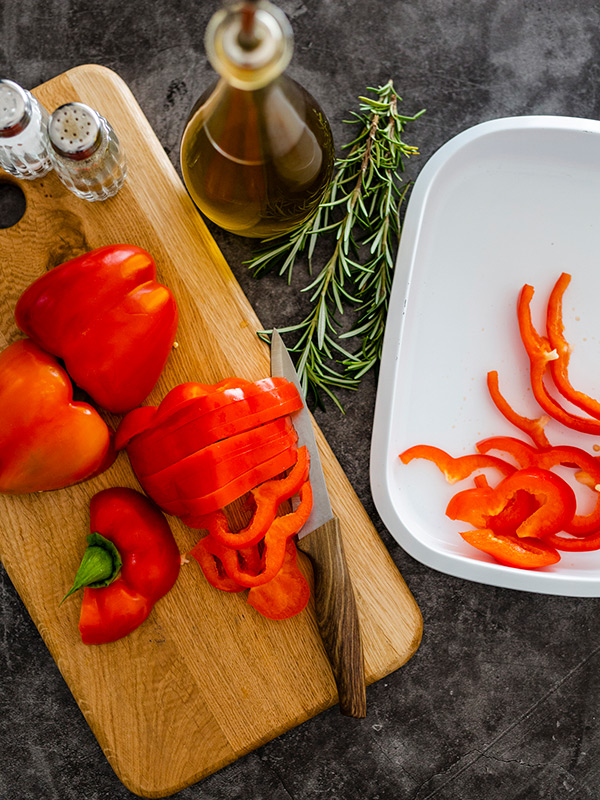
Yes, technically, bell peppers are fruits. "They contain capsicum, which has antioxidant, anti-inflammatory properties," Feller explains. "These properties can help mitigate free radical damage in the skin and promote skin turnover."
5. Avocados
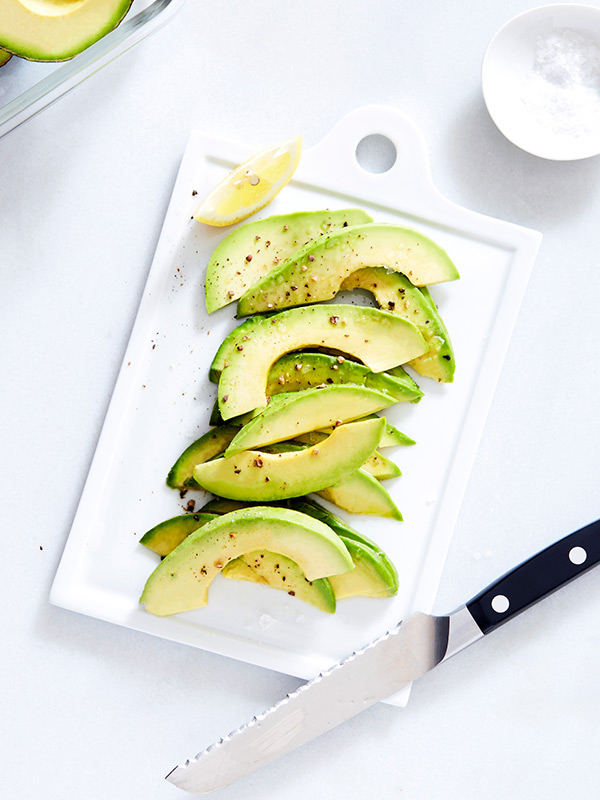
Don't skip the avocado toast. "While some argue whether avocado is a fruit, vegetable, or considered a fat, the truth is that this food contains multiple vitamins and minerals, such as vitamin E, potassium, fiber, and monounsaturated fats, that help to support glowing, plump skin," Scheller says.
6. Cucumber
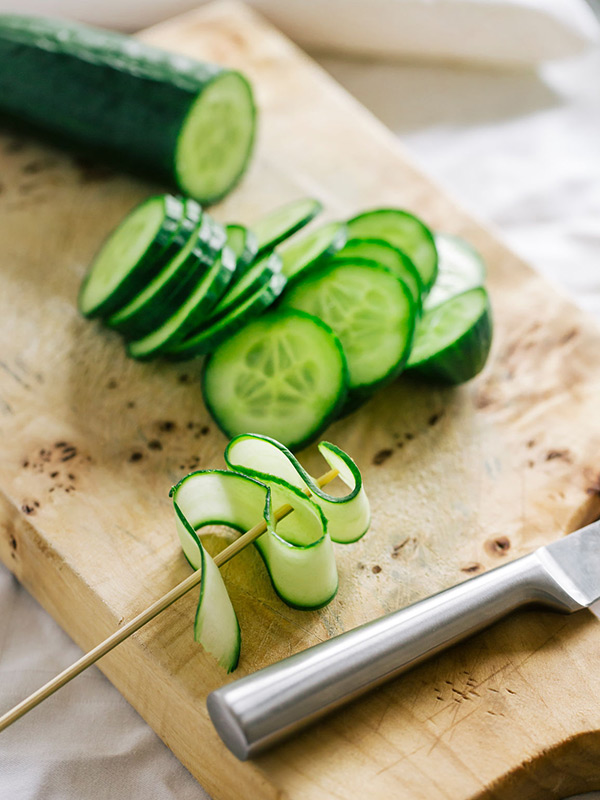
And yes, cucumbers are considered a fruit, too. "They contain a large amount of water and when ingested and applied topically can help hydrate the skin and reduce inflammation," Feller says.
Best Vegetables to Help Reduce Inflammation
1. Collard Greens
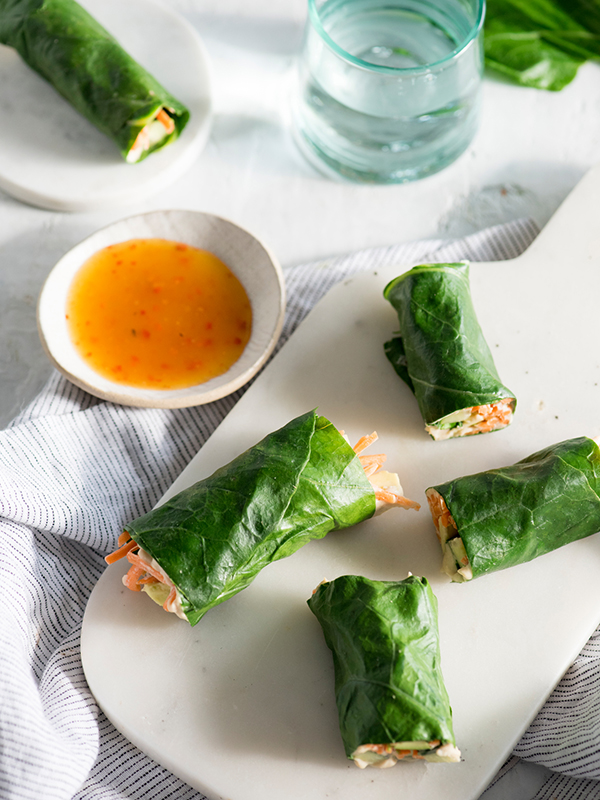
"Collard greens contain sulfur compounds, which serve as anti-inflammatory agents and may help lower risks of cardiovascular disease," Feller says.
2. Beets
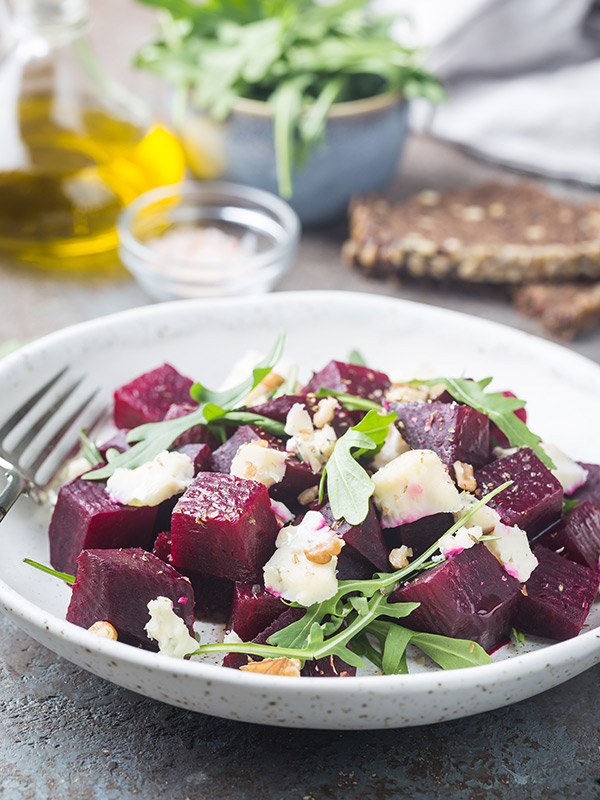
Ansari says beets provide a powerful plant pigment called betalains, which are a group of antioxidants. They can help decrease inflammation and protect the liver. For preparation, she recommends juicing, roasting, making hummus, or adding them to a salad.
3. Tomatoes
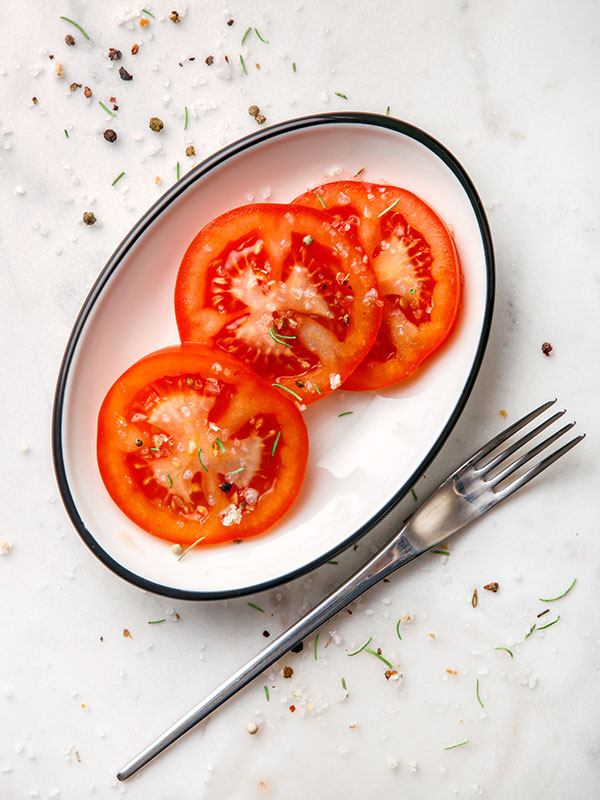
"Tomatoes are rich in vitamin C, beta carotene, and also contain an antioxidant known as lycopene," Schller explains. "Lycopene has benefits for supporting cardiovascular health and the immune system." She says cooking tomatoes increases the amount of lycopene present
4. Jerusalem Artichokes
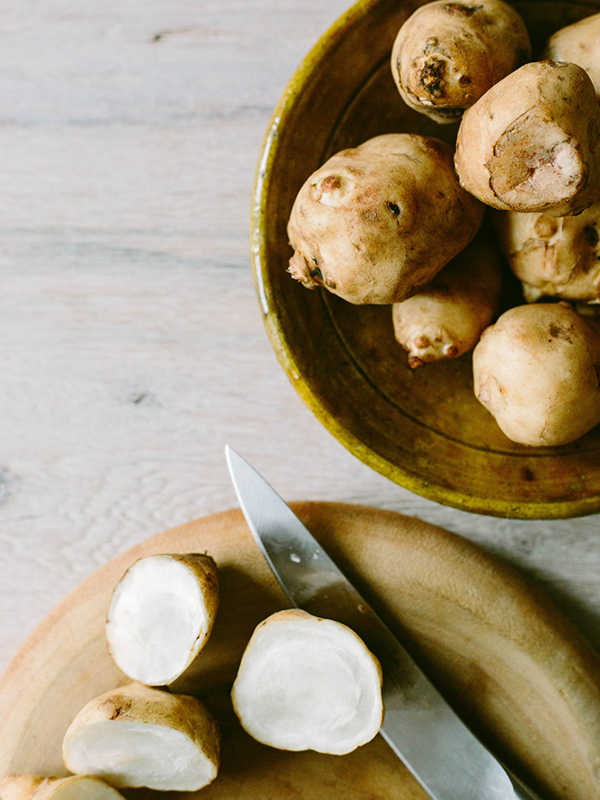
Jerusalem artichokes are another vegetable that contains inulin, a prebiotic that powers probiotics. "Probiotics may help improve your immune function, fight inflammation, lower your cholesterol and prevent and reduce disease-causing bacteria from multiplying," Feller says.
5. Kale
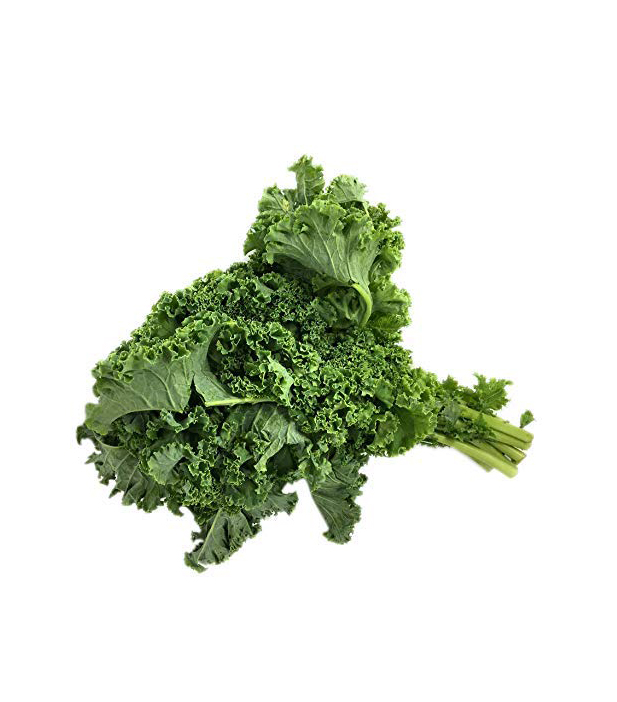
You'll see green leafy vegetables like kale and spinach throughout this article. That's because they are powerhouse foods with so many benefits. "They can help decrease inflammation," Ansari says. "Make a salad out of them, add to smoothies, or as the green in your sandwich or burger!"
6. Broccoli
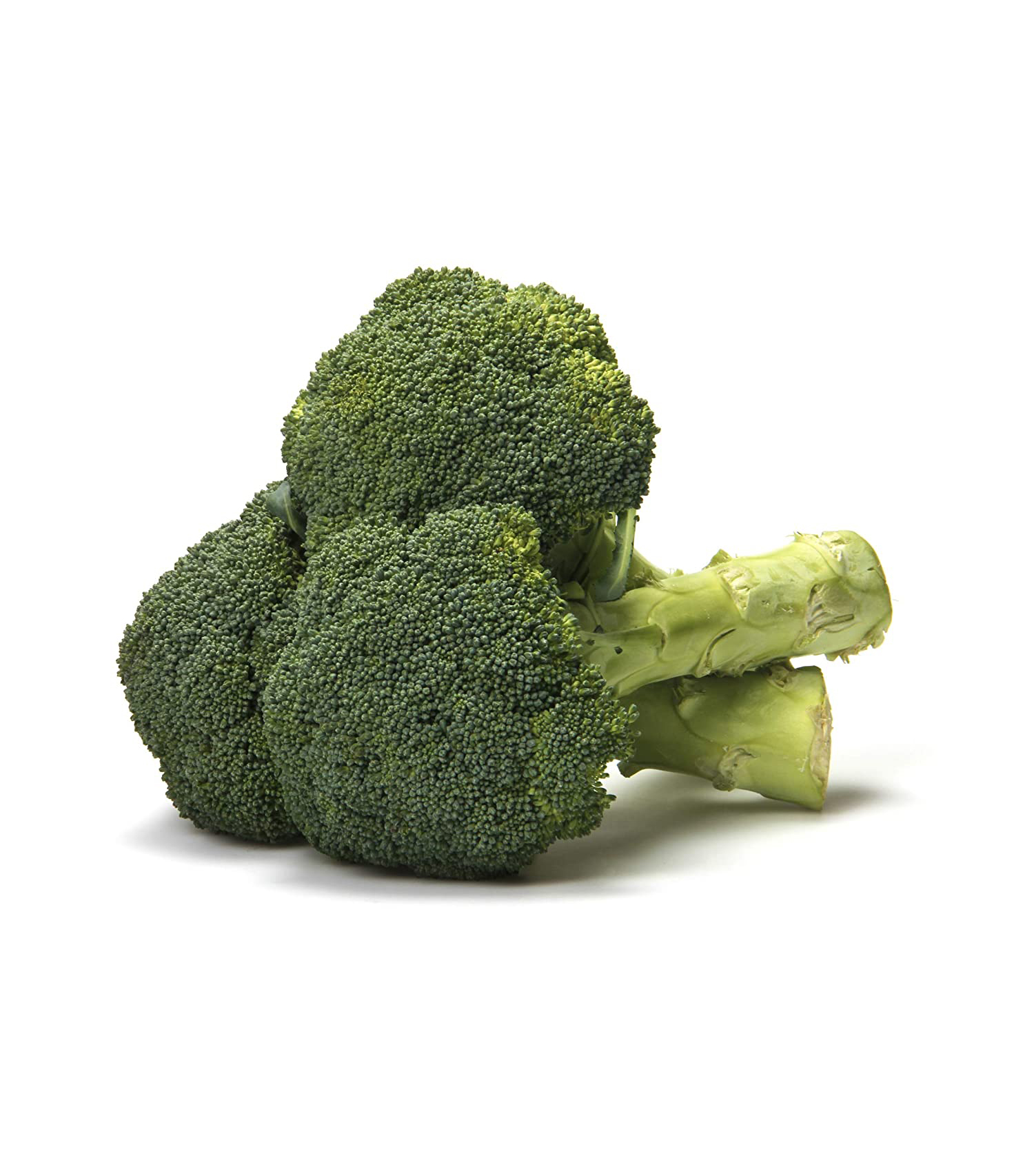
"Broccoli contains phytonutrients that have anti-inflammatory properties by suppressing enzymes in the body known to act as cancer-causing agents," Feller says. "It is also a good source of fiber and promotes gut health." Scheller adds that cruciferous vegetables help stimulate the liver and the body's natural detoxification systems.
Best Fruits to Help Reduce Inflammation
1. Oranges
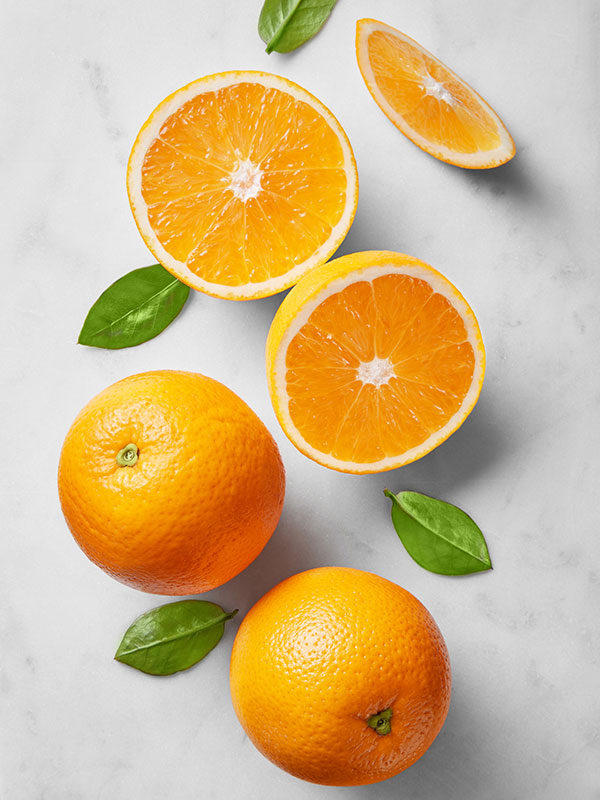
When you think of vitamin C, you probably immediately think of an orange. Feller says vitamin C helps free radical damage in the body.
2. Blueberries
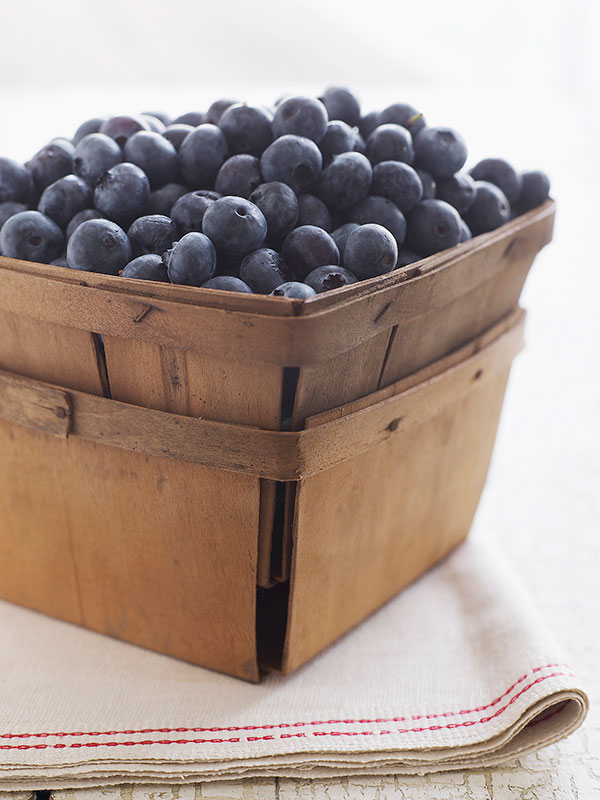
"Blueberries contain anthocyanins, which are part of a class of antioxidants called flavonoids," Ansari explains. "They offer properties that help get rid of inflammatory free radicals which can damage cells that can contribute to aging and may increase the risk of disease." Berries, in general, are so good for inflammation thanks to their antioxidant properties.
3. Red Grapes
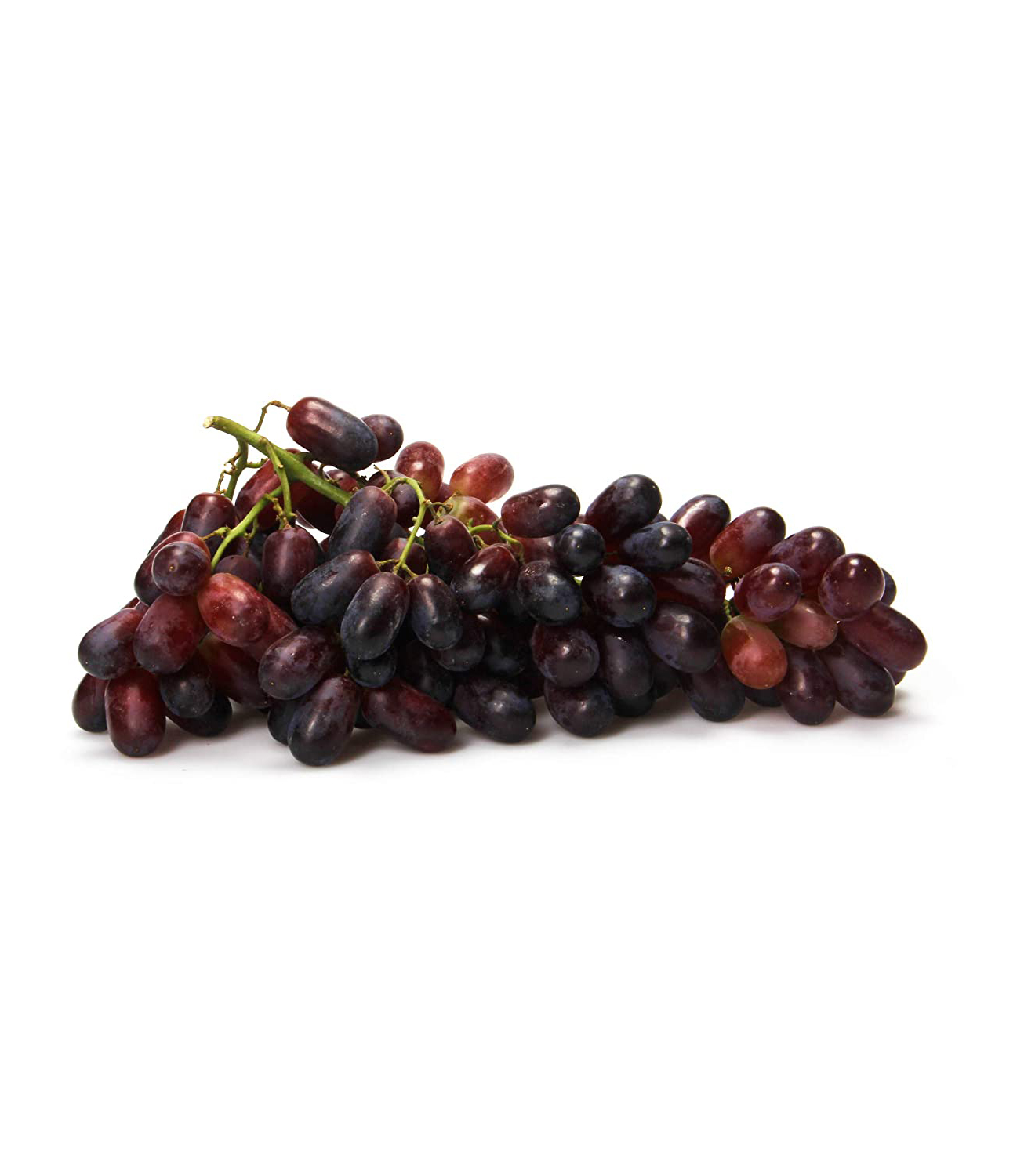
"Red grapes, specifically the skin of red grapes, contain an antioxidant compound called resveratrol that helps aid in reducing inflammation along with its many anti-aging benefits," Scheller says. "While this has been touted as one of the benefits of drinking red wine, tread lightly, as alcohol can actually increase inflammation in the body."
4. Cherries
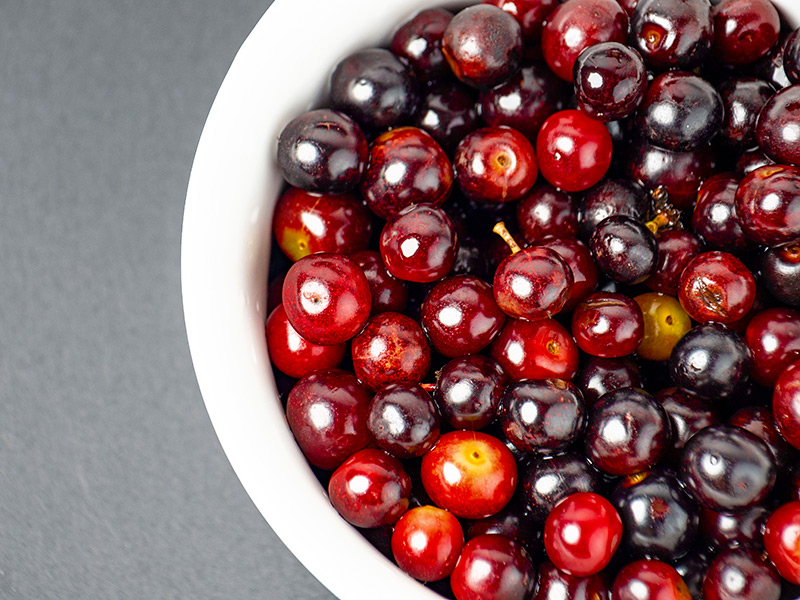
"Cherries contain polyphenols and vitamin C, which both serve as antioxidants and have anti-inflammatory properties when ingested," Feller says. "There has been compelling research on the benefits of cherries, as they have the potential to reduce oxidative stress when performing exercise and daily activities."
Best Vegetables to Improve Digestion
1. Fennel
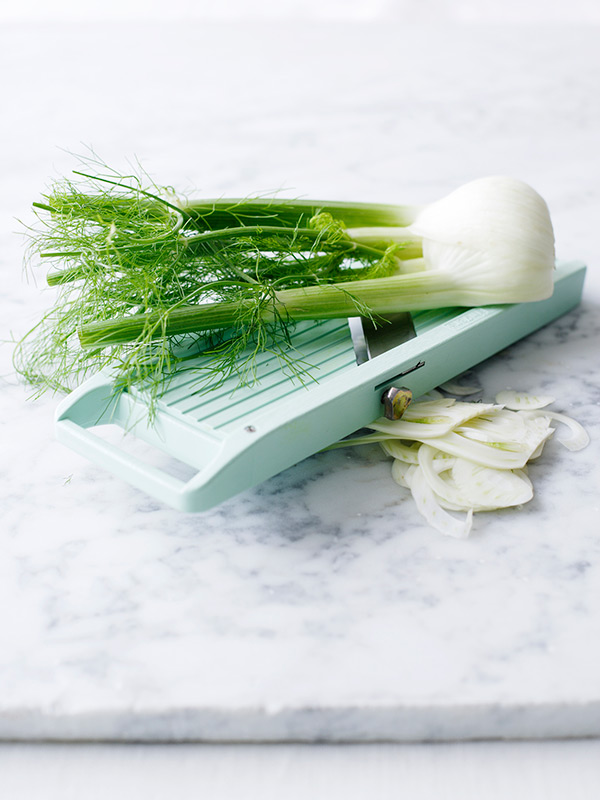
Fennel has antibacterial properties that can alleviate indigestion, diarrhea, and dysentery, Feller says.
2. Sweet Potatoes
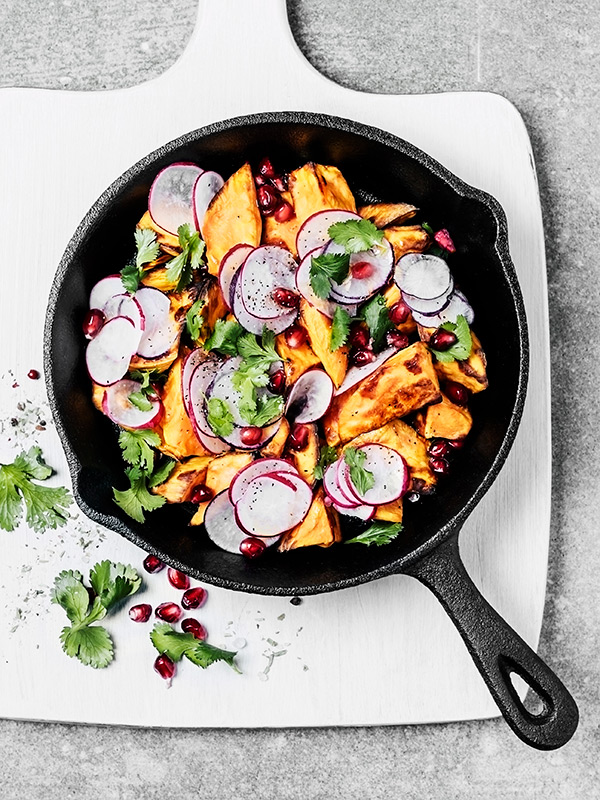
"Overall, the majority of Americans need to be eating more daily fiber," Ansari says. "Eating fiber helps increase bulk and move food along the GI tract." She recommends aiming to eat foods that provide at least 2.5 grams of fiber per serving. Some good sources include sweet potatoes and sweet bell peppers.
3. Artichokes
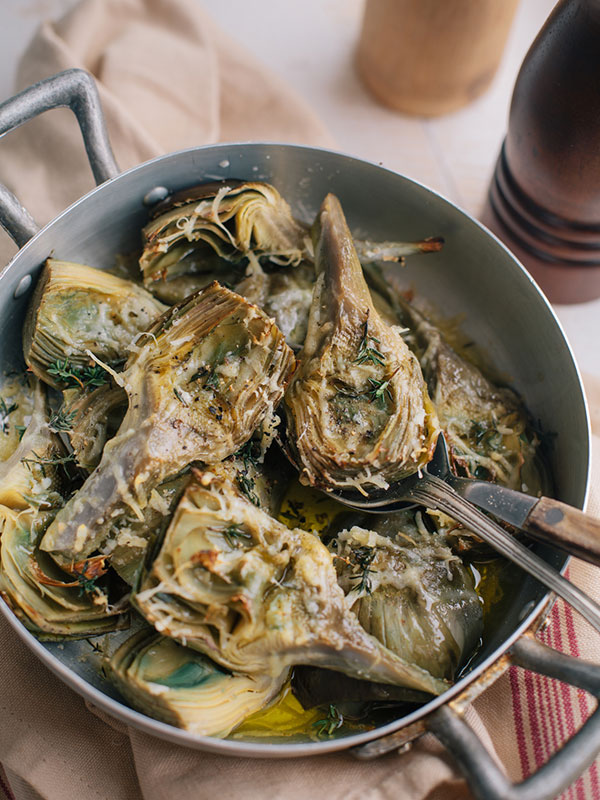
Scheller says that artichokes are a good source of prebiotic fiber, folate, magnesium, and vitamin C. And Feller adds that the vegetables contain inulin, which promotes healthy gut bacteria and keeps bowel movements regular.
4. Broccoli
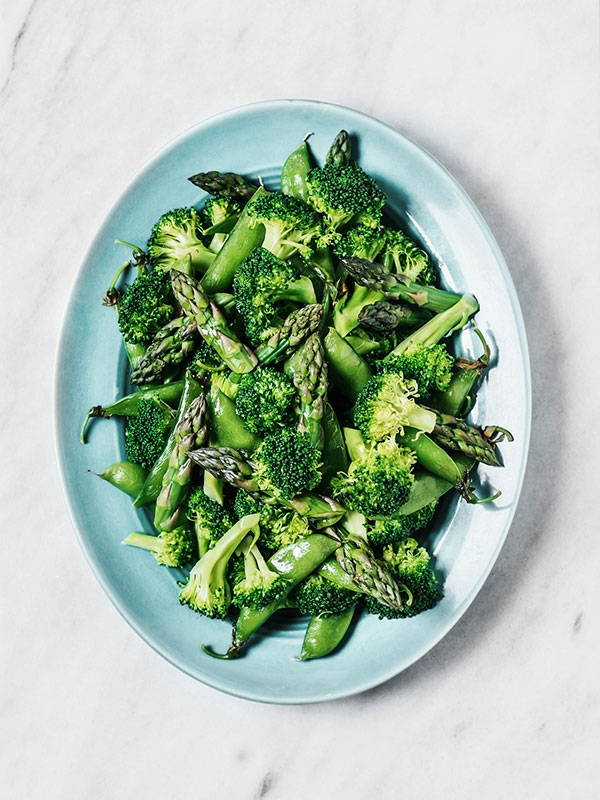
Surprise, it's broccoli again! "Cruciferous veggies like broccoli, cauliflower, and cabbage help provide fiber and micronutrients that help with waste removal," Scheller explains. "They also help to stimulate the liver and gallbladder to release old bile from the system to be removed during elimination."
5. Spinach
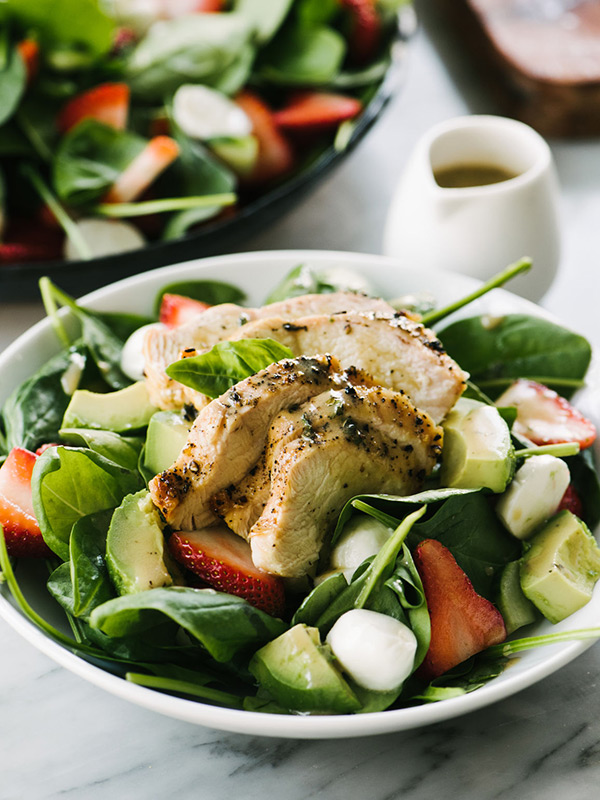
"It's high in both fiber and water content, which can help prevent constipation and promote a healthy digestive tract," Feller says.
6. Fermented Vegetables
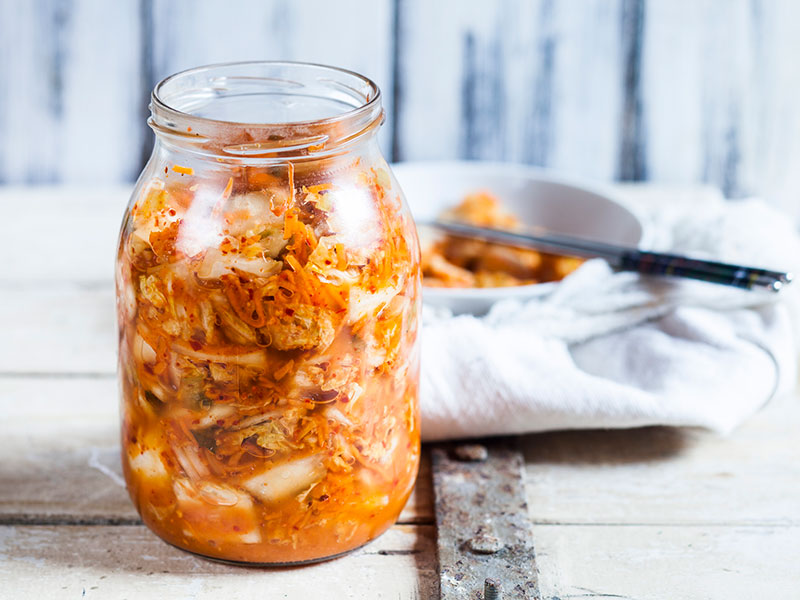
Scheller says fermented vegetables are worth adding to your list because they contain probiotics, which can help balance digestive function.
Best Fruits to Improve Digestion
1. Papaya
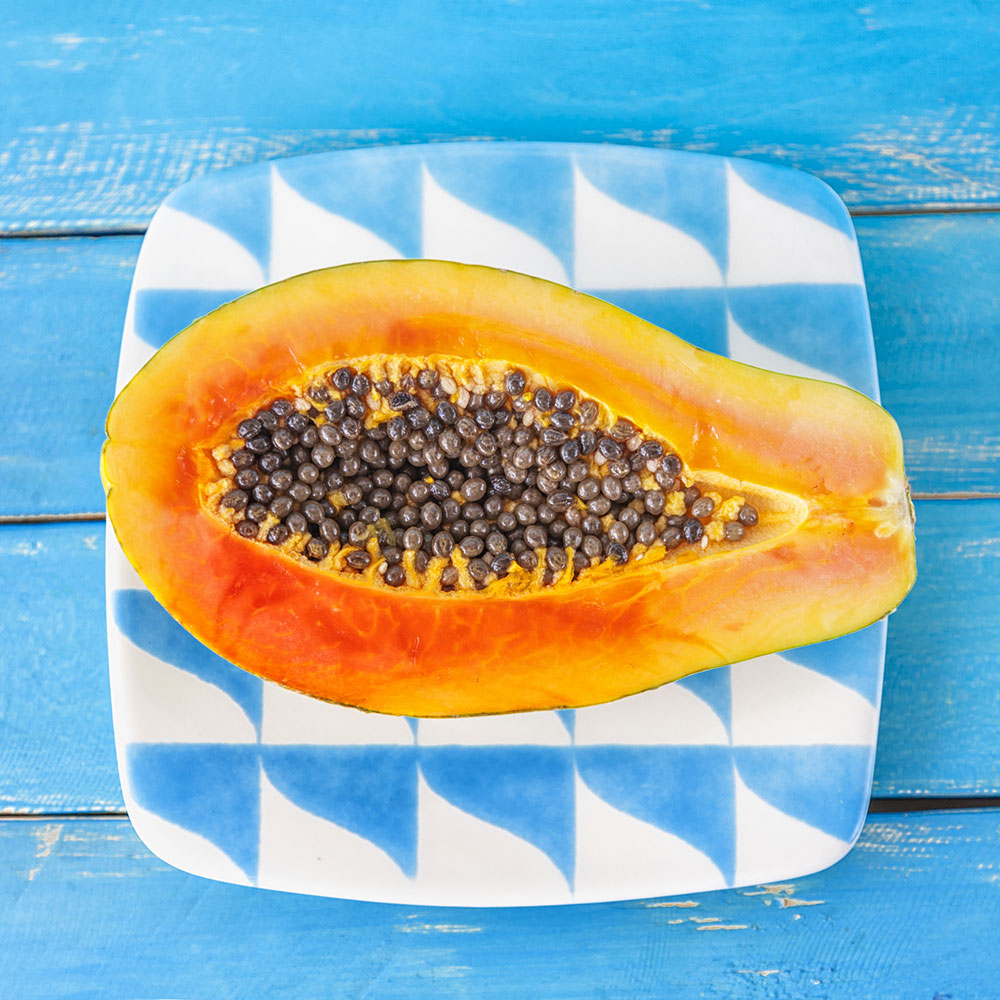
"Papaya contains a specific enzyme, papain, that aids in the digestion of protein," Scheller explains. "While many of us consume adequate amounts of protein in the diet, we may still have protein deficiencies due to improper enzymes to break these foods down in the stomach. Protein is one of the more difficult nutrients to digest, and therefore adding additional enzymes, like papain, can help ensure you're absorbing what you consume."
2. Prunes
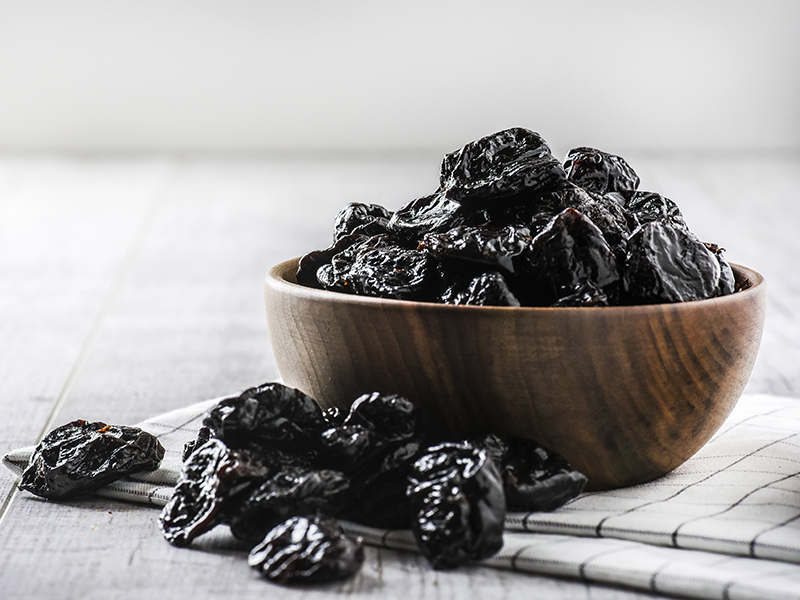
Feller says prunes are high in fiber and can improve the consistency and frequency of bowel movements.
3. Kiwi
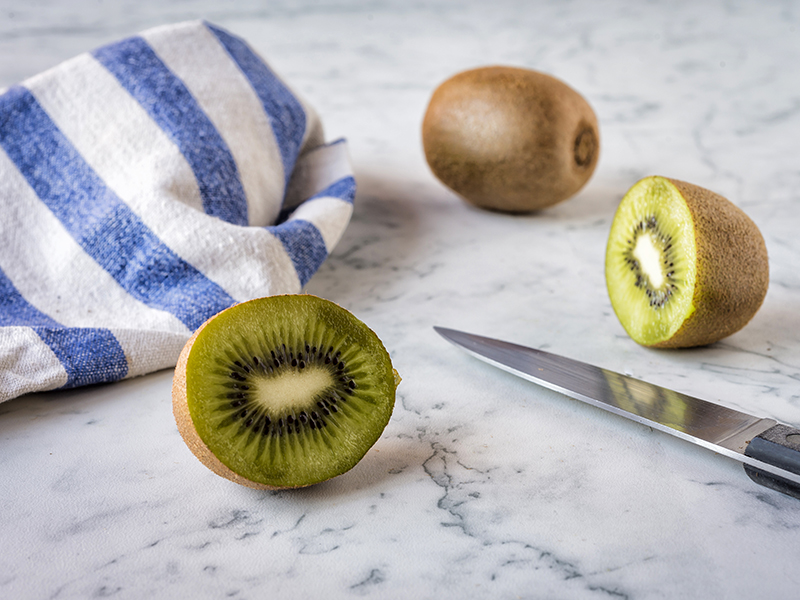
Ansari recommends kiwi as another high-fiber food to try—one whole kiwi has 2.1 grams of fiber.
4. Pears
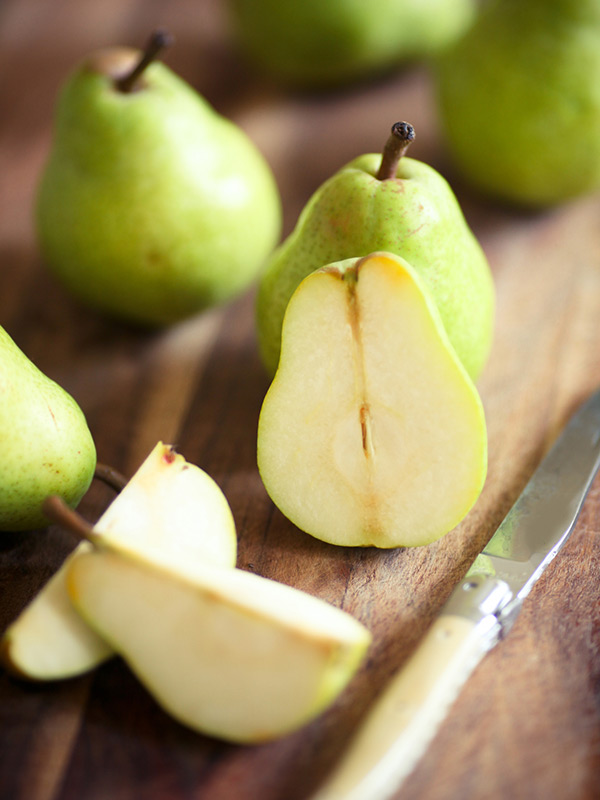
"They contain fiber, fructose, and sorbitol, which, when combined, may have a laxative property and can help in digestive health to keep bowel movements regular," Feller says.
5. Bananas
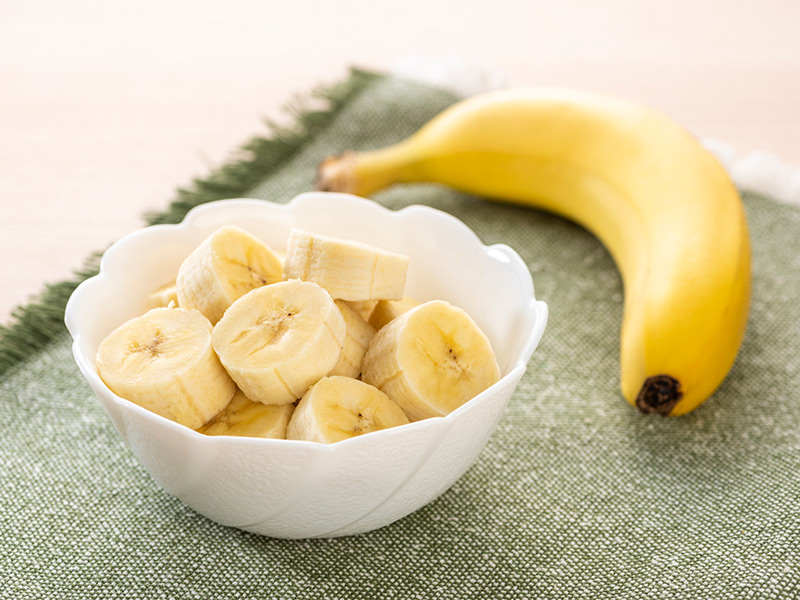
Ansari recommends looking for fruits that promote healthy bacteria, like bananas.
6. Figs
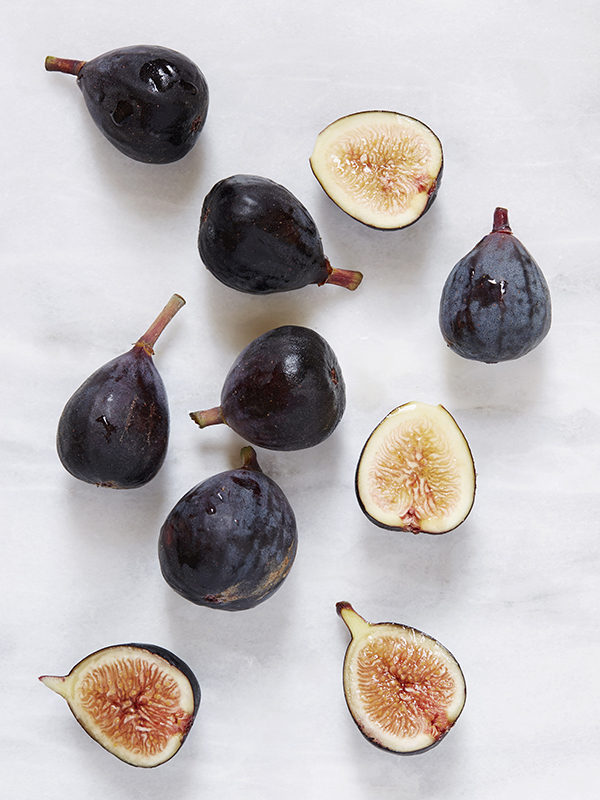
"They are high in fiber, which helps promote healthy digestive function by softening stool, preventing constipation, and improving the regularity of bowel movements," Feller says.
7. Apples
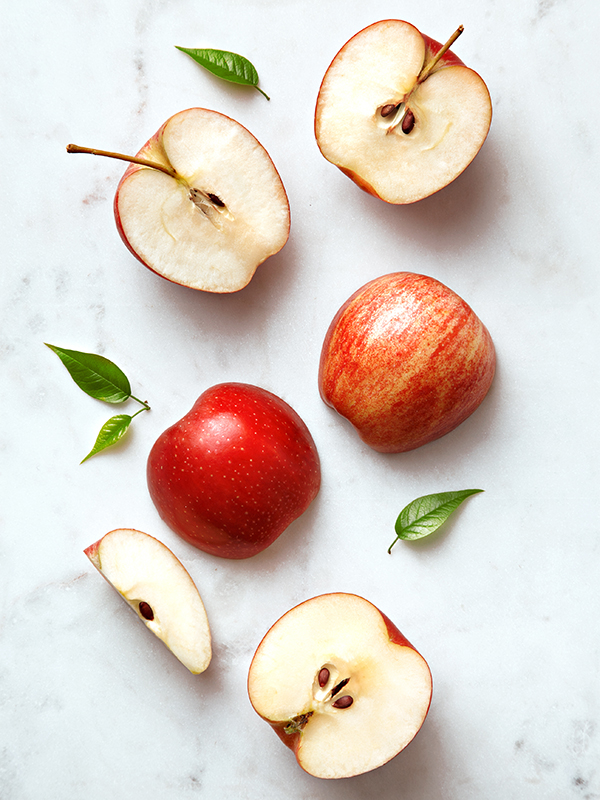
Scheller says apples are one of her go-tos for digestion because of their fiber content and low levels of sugar.
Next up: 8 Foods Cardiologists Want You to Eat—and 5 You Should Avoid
This article is provided for informational purposes only and is not intended to be used in the place of advice of your physician or other medical professionals. You should always consult with your doctor or healthcare provider first with any health-related questions.
Sarah is lifestyle writer and editor with over 10 years of experience covering health and wellness, interior design, food, beauty, and tech. Born and raised in Los Angeles, she attended New York University and lived in New York for 12 years before returning to L.A. in 2019. In addition to her work atBest Knockoff Luxury Clothing , she held editor roles at Apartment Therapy, Real Simple, House Beautiful, Elle Decor, and The Bump (sister site of The Knot). She has a passion for health and wellness, but she especially loves writing about mental health. Her self-care routine consists of five things: a good workout, “me” time on the regular, an intriguing book/podcast/playlist to unwind after a long day, naps, and decorating her home.